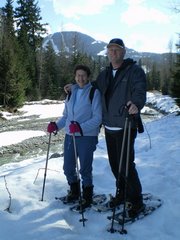
You may not want to read this. I promise happier thoughts in the future. But my privilege requires it.
Entering into another country’s open wound – mass murder and genocide – is like standing next to the surgeon as they probe a cancer. It feels personal, and a privilege, though I never met any of the victims. Yet I have heard from their children and grandchildren, have seen their tears, and strangest of all, have touched their very bones. They are stacked in clear bags and cardboard boxes at the Forensic Anthropology Foundation of Guatemala, as they are matched through meticulous DNA testing with the some 50,000 people who were “disappeared” during the Armed Conflict. This is a crucial project for the healing of the nation, not to mention the individual peace of thousands of families. And it is a chance to ask about the role of the church in this healing, about the church’s silence at key points, about the ways the sins of the past reach into the present daily life of Guatemalans. The blood still cries out from the ground.
I’m not sure what to write about this, so can I process my junk for a minute? What relevance could this strange privilege of mine – to glimpse a national agony not my own -- have to my friends? I don’t know the answer to that question; perhaps you can tell me. At least bear with me. At the next table tonight, an American youth group from Michigan is here on a mission project. They are serving Guatemalan kids. Their youth pastor announced to me that Jesus really didn’t call people to end poverty. They are just here to save the street kids of Guatemala City. But I wondered what he would say to the relatives of the victims, or to the custodians of the bones. Did not Zaccheus’ repentance mean justice for those whom he had oppressed in his city? The Youth Pastor’s gospel drives him to acts of compassion, but cannot lead him to imagine, let alone pay the price needed for there to be transformation of evil systems. His message of love, delivered to the grandchildren of the murdered, will be appreciated by them, but does he realize the children on the street are there precisely because generation of Grandfathers was violently removed from their role as provider and model? Did their pain and the agonized cry of the children left to fend for themselves not echo in God’s ears, break God’s heart? As Ray Bakke reminds, did not a political decision by Herod mean that hundreds of kids died for Jesus before he had a chance to die for them? Does the heart of Jesus not long to transform the systems that keep pumping out modern day Herods in every generation? And because our CIA funded the Herods of that generation, do I not bear some responsibility to speak for these bones? Sorry, impolite questions.
I saw it lying on the table at the forensic lab, though I could almost feel as if it saw me. It was the latest skull to be unearthed, found among the murdered. It was slightly larger than my fist. Children have always suffered worst for the sins of adults.
As I passed through rooms stacked to the ceiling with sealed and tagged boxes – the remains of identified victims – my fatigue began to grow. As I listened to our guide, I absent-mindedly leaned against a stack of them, as if a wall. A pillar of bones, some with the unique signatures left by machetes on limbs or gunshots to heads. Thousands of tibia, fibula, clavicles, hip bones, no longer privileged to support their original owners, they now supported me – helped stand me up straight for a little longer. The least I can do is stand up for them. The least I can do is to train leaders to ask the impolite question, imagine a future without need for a place like this, and organize their lives around that quest.




2 comments:
Thanks for posting this. What you write is eerily reminiscent of what Gary Haugen (founder of International Jutice Mission) writes about his investigation of the Rwandan genocide in his book Good News About Injustice. You might enjoy reading it.
What a powerful experience. Thanks for so honestly sharing about it.
SP
Post a Comment